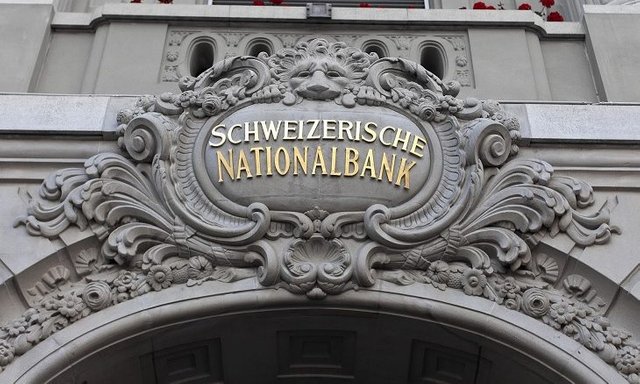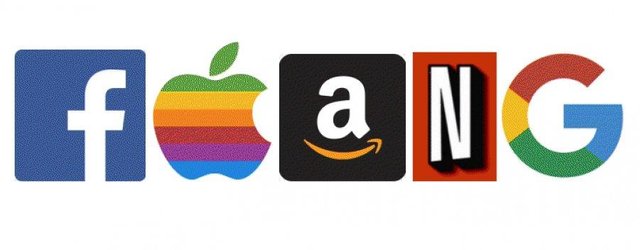The Financial Blog: The Swiss National Banks $90 billion portfolio
The banking industry has been a staple of our financial economies since the age of man. Starting around 2000 BC, the first banks were simple and gave grain loans to farmers and merchants to trade or grow. As civilization evolved so did the banking industry as they started to accept deposits and perform money lending. This helped spur business and grow economies as it gave people more financial opportunities to grow.
Looking at the banking system now, it looks like that of an impenetrable fortress. Banks nowadays have their hands in nearly everything and are supported by nearly every government. While they look simple from the outside once you dive a little deeper and start looking under the hood at how they work the questions as to how is this right start to appear? This last year I started my journey into researching the financial industry and discovered a lot of interesting and deeply disturbing issues that plague our current financial system.

The issue I will be bringing up today covers the Swiss National bank and their involvement in the FAANG stocks. If you don't already know what a National Bank is, it is a bank owned by the state or nation that it resides in or a private bank which operates at a national level. These banks have a right to create money which they do by printing more or by using fractional reserve banking (I can dive into this in a later post if people are interested). These methods help grow the economy by bringing more money into the economies of the world however, it comes with a price. That price is called inflation. Inflation is defined as, "a general increase in prices and fall in the purchasing value of money." This occurs when more money is being created and each dollar, yen, Euro or Ruble is worth less than the year before. We have seen inflation occur within the last couple decades as you could purchase a candy bar for $.25 in the year 2000 and now those same bars are $1.50. There have been extreme examples called hyper inflation occur in Zimbabwe and Venezuela where the value of the currency has dropped to almost nothing and the paper it is printed on is worth more than the actual value printed on the note.
Since these banks can control the creation of money, they can also control the inflation rate of a country. The United States tries to keep a target of around 2% inflation which they have as a target in the Federal Reserves statutory mandate. So the banks can in essence control the value of our currencies by the creation of money. Now if banks can print as much money as they want with the only drawback being that each dollar is worth less, there is little consequence for them to continue to push the inflation rate higher as they don't see much if any of the actual loss in value. The loss is felt by the normal consumer that saves their money in the bank each year.
As an example lets say John has $10,000 he has been saving in a savings account that is earning .5% interest each year. Now at the end of the year that $10,000 has grown to $10,050. Some might say John has gained $50 dollars by smartly saving his money in the bank, however this couldn't be further from the truth. Last year the inflation rate in the US was 2.1%. Now that means that Johns $10,000 dollars lost 2.1% of it's value just for being money. So in actuality john didn't gain $50 he actually lost $160, that $10,000 he had at the beginning of the year is now only worth $9,840. Now where did that value go to one might ask? Who printed the money to cause the inflation? That's right the banks took Johns $160 value.
This is a little disturbing to think about how our society has been tricked into thinking saving our money in banks is a smart investment. But in reality we are just making the banks richer and ourselves poorer in the process. Now I will start to get to the meat of this article where I was left disgusted and in shock.

The stock market is a place known to people as a risky and volatile market where fortunes are made and lost in the blink of an eye. It is a battlefield where only the smart or lucky survive. Now since 2010, we have seen 5 stocks in particular grow at astounding rates, these are the FAANG stocks which I spoke about earlier. These 5 stocks are comprised of Facebook, Amazon, Apple, Netflix and Google. Now we have seen these stock climb in price since the recession of 2007 thru 2009 and the numbers are absolutely absurd.
(Rounded numbers)
Facebook: 2013 - $28 / 2018 - $183
Apple: 2010 - $30 / 2018 - $173
Amazon: 2010 - $130 / 2018 - $1200
Netflix: 2010 - $7.8 / 2018 - $200
Google: 2010 - $308 / 2018 $1100
So the growth of each of these stocks has been:
Facebook: 653.5%
Apple: 576.6%
Amazon: 923%
Netflix: 2564%
Google: 357%
For an 8 year span those numbers are ridiculous (5 years for Facebook). Now one might argue that that is because these companies have been the most innovative in the last decade so they should grow at such an astounding rate, and to be fair they really have been and deserve a lot of the the growth they have received. But, these stock didn't grow that high by their own they had a lot of help.
An article I was shown last year brought insight into what could helping these 5 corporations push their stock higher and higher and that is banks, more specifically the Swiss National Bank (SNB). This article showed that on the SNB balance sheet there is close to $88 billion in a portfolio for US equities which is roughly .3% of the US stock market. They are the 35th largest investor in the US stock market.
Company Value (in millions) Shareholder rank
Apple $2,967 27th
Alphabet $2,190 39th
Microsoft $2,031 33rd
Facebook $1,516 34th
Amazon $1,440 35th
Johnson & Johnson $1,401 26th
Exxon Mobil $1,353 21st
AT&T $995 24th
Procter & Gamble $941 23rd
Pfizer $844 32nd
Now while they don't own a commanding position in any of the companies they own enough to push the price higher and affect the value of the stock. What I have great issue in is that this is a bank that can create as much money as they want and is using this money to directly influence the stock market let alone a selected few stocks. While I find this grossly wrong it is the current system we live in and one we need to change or else those in positions of great power and wealth will continue to thrive and those below them will continue to whither and fall deeper into poverty.
If you have any questions or comments please leave them below. I will be writing more posts like this one about the financial world and hopefully help open some eyes on how the system really works. If there is a topic you would like covered leave a comment below and I would love to talk about it or if it is something I don't know already learn about. Hope you have a great day and if you liked this please continue to support my blog.
Article on the SNB:
https://qz.com/1140322/check-out-the-swiss-central-banks-insane-90-billion-investment-portfolio/
Interesting data points and scary considering what could happen if the prices turn the other way and the implications that may have to the bank and/or forced selling of these assets. They surely took it on the chin last week when Facebook lost 20% of its value!